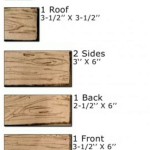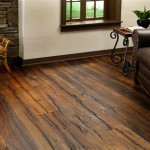Laying Solid Hardwood Flooring On Concrete
Laying solid hardwood flooring directly on concrete is a popular choice for homeowners seeking the warmth and elegance of hardwood while enjoying the durability and moisture resistance of a concrete subfloor. This method, however, requires careful preparation and consideration of several factors to ensure a successful installation and long-lasting results.
Preparing the Concrete Subfloor
The success of any hardwood flooring installation hinges on the condition of the subfloor. Concrete subfloors must be properly prepared to create a level, smooth, and stable base for the hardwood. This preparation involves several essential steps:
- Clean the Concrete: Thoroughly clean the concrete surface, removing any dirt, debris, paint, or other coatings. This can be achieved using a stiff-bristled broom, a shop vacuum, or a pressure washer.
- Repair Cracks and Unevenness: Fill any cracks or voids in the concrete using a high-quality epoxy or concrete patching compound. If the concrete surface is uneven, a leveling compound can be applied to create a smooth, level surface.
- Moisture Barrier: A moisture barrier is crucial to prevent moisture from the concrete from damaging the hardwood flooring. This can be achieved using a 6 mil polyethylene sheet that overlaps by at least 6 inches at the seams.
Installing a Moisture Barrier
A moisture barrier is essential to protect the hardwood floor from potentially damaging moisture that can seep from the concrete subfloor. It acts as a protective layer, preventing the wood from warping, cupping, or rotting. Here's how to correctly install a moisture barrier:
- Choosing the Right Material: The most common material for moisture barriers is 6 mil polyethylene sheeting, which is readily available at most home improvement stores. Ensure the sheet is thick enough to provide adequate protection.
- Laying the Sheet: Unroll the polyethylene sheet over the prepared concrete subfloor, ensuring it covers the entire area. Overlap the seams by at least 6 inches and tape them securely using a moisture-resistant tape.
- Secure Edges: Secure the edges of the moisture barrier to the walls using a staple gun or construction adhesive. This ensures it remains in place during the flooring installation.
Choosing the Right Subfloor
Once the concrete subfloor is prepared, a subfloor system needs to be installed before laying the hardwood. This system provides a stable and level surface for the hardwood, while also addressing any potential issues like moisture or unevenness. There are two primary options for a subfloor system:
- Plywood Subfloor: Plywood is a popular choice for subfloors due to its strength, stability, and affordability. It is available in various thicknesses, with 3/4-inch being the most common for hardwood flooring. Plywood sheets should be laid perpendicular to the joists and secured with screws or nails.
- Oriented Strand Board (OSB): OSB is another commonly used subfloor material. It consists of wood strands that are bonded together with resin. OSB is known for its strength and affordability, making it a viable alternative to plywood.
Installing the Hardwood Flooring
With the subfloor in place, the installation of solid hardwood flooring can commence. This process involves several steps, each requiring careful attention to ensure a successful installation:
- Acclimate the Wood: Before installation, solid hardwood flooring should be acclimated to the room's temperature and humidity for several days. This allows the wood to adjust to its new environment and minimize the risk of warping or shrinking after installation.
- Laying the First Row: The first row of hardwood planks should be laid against the wall, leaving a gap for expansion. This gap is typically recommended to be 1/4 inch. Install the planks using a nail gun or hammer and nails, ensuring they are tightly fitted together.
- Installing Subsequent Rows: Each subsequent row of hardwood planks should be laid perpendicular to the first row, and the planks should be offset to create a staggered pattern. This pattern, known as a running bond, enhances the strength and stability of the floor.
- Finishing Touches: Once all the planks are installed, use a wood filler to fill any gaps or cracks between the planks. After the filler dries, sand the floor to smooth out any imperfections and prepare it for finishing.
Additional Considerations
Several additional considerations should be taken into account when laying solid hardwood flooring on concrete:
- Underlayment: Underlayment can be used to provide additional support for the hardwood flooring, reduce noise, and enhance comfort. There are various types of underlayment available, including foam, rubber, and cork.
- Expansion Gaps: Always leave expansion gaps between the hardwood flooring and the walls, as well as around any fixed objects in the room. These gaps allow the wood to expand and contract with changes in temperature and humidity.
- Professional Installation: For complex installations or large projects, it is recommended to consult with a professional flooring installer. Their expertise can ensure proper installation, minimize potential issues, and guarantee a successful project.

Installing Wood Flooring Over Concrete Diy

Installing Hardwood Floors On Concrete Subfloors

How To Lay Solid Wood Flooring Over Concrete

Fitting Hardwood Floor To Concrete Wood And Beyond Blog

Wood Flooring Blog How To Lay Oak On Concrete Peak

Installing Engineered Hardwood On Concrete Twenty Oak

Installing Engineered Hardwood On Concrete Twenty Oak

Wood Flooring Blog How To Lay Oak On Concrete Peak

Installing A Hardwood Floor Over Concrete Slab American Information Center

Installing Wood Subfloors Over Concrete Hardwood Floors
Related Posts








